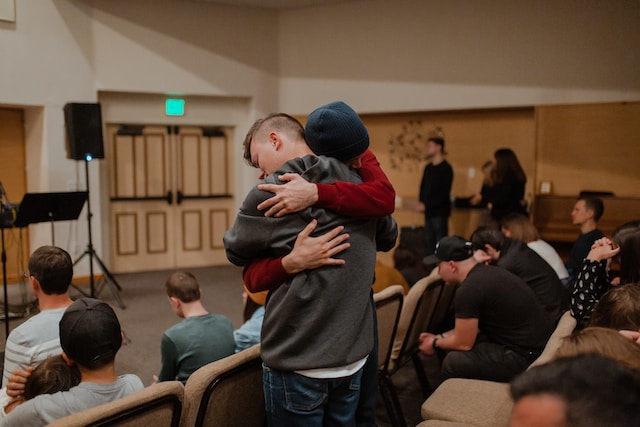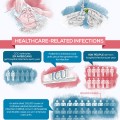 Navigating the scary waters of addiction isn’t a solo endeavor. The ripple effect is profound when someone is trapped in the clutches of substance abuse, gambling, or any form of addiction. It touches families, friends, colleagues, and the broader community. Therefore, understanding how to help a loved one dealing with addiction becomes a collective responsibility, an intertwined journey of empathy, patience, and proactive action.
Navigating the scary waters of addiction isn’t a solo endeavor. The ripple effect is profound when someone is trapped in the clutches of substance abuse, gambling, or any form of addiction. It touches families, friends, colleagues, and the broader community. Therefore, understanding how to help a loved one dealing with addiction becomes a collective responsibility, an intertwined journey of empathy, patience, and proactive action.
At its core, this journey isn’t just about aiding the person directly affected; it’s about forging a united front, empowering each individual with knowledge and resources, and collectively steering the ship towards calmer, more hopeful shores. To do this, let’s explore expert insights and actionable steps for those seeking to become an anchor of support and hope.
1. Dive Deep into Addiction Knowledge
Understanding the intricate nuances of addiction is pivotal. By immersing yourself in research, attending seminars, or participating in webinars, you can better understand the challenges your loved one faces.

Thorough research is vital to understand addiction and recognize the behaviors of someone affected.
2. Sharpen Your Observational Instincts
In the intricate dance of addiction, subtle changes often speak louder than overt actions. Developing an acute sense of observation is vital, especially when detecting early signs of addiction relapse or escalation. Recognizing signs of substance abuse or gambling addiction might include mood changes, declining interest in hobbies, shifts in sleep patterns, unexplained financial issues, or increased secrecy.
By staying attuned to these common indicators, you can preemptively address concerns before they escalate. Remember, it’s not about prying or invasion of privacy but a sincere effort to understand and aid. Equip yourself with knowledge and observation skills, ensuring you’re always one step ahead, ready to lend a hand when your loved one needs it the most.
3. Foster Open and Genuine Conversations
In the landscape of addiction, one of the most powerful tools at our disposal is genuine conversation. Constructing a safe space where words flow freely, without judgment or preconceived notions, is vital. Authentic dialogue allows your loved one to voice their fears, struggles, and aspirations, giving you a clear window into their world.
As a supporter, it’s not solely about offering advice but about lending a listening ear, showing empathy, and understanding their perspective. Open discussions can clear misconceptions, bonds are fortified, and trust is deepened. Prioritizing such genuine exchanges helps bridge emotional gaps and positions you as a reliable pillar of support during their recovery journey.
4. Explore and Engage with Support Communities
In the expansive realm of recovery, the collective wisdom of support communities stands out as a beacon for many. Engaging with these groups can offer an invaluable reservoir of shared experiences, coping techniques, and emotional understanding. In truth, facilities such as Bright Futures Treatment Center, a stalwart in addiction recovery, often emphasize the paramount importance of these support groups.

Support groups are crucial; their shared experiences can help a loved one with addiction.
5. Craft and Uphold Trustworthy Boundaries
While extending an unwavering hand of support, it’s crucial to establish and maintain clear boundaries. These can be in the form of emotional distances, financial limits, or time constraints.
Setting such boundaries not only shields you from potential emotional or financial strain but also ensures your loved one understands the consequences of their actions, promoting a sense of responsibility and discouraging enabling behaviors.
6. Don’t Neglect Yourself
One might unintentionally shoulder significant strain in the commitment to assist someone grappling with addiction. If left unchecked, this ongoing stress can lead to the negative health impacts of stress, affecting both mental and physical well-being. While the drive to help is commendable, it’s essential to recognize that your resilience forms the bedrock of this support system.
Therefore, dedicating time for self-care–be it through meditation, engaging in hobbies, or brief moments of solitude–becomes paramount. These acts of self-kindness serve as refreshers, helping recalibrate emotions and energy. As you journey alongside your loved one, ensuring your cup remains full is vital. This balanced approach safeguards your health and ensures that your support remains unwavering and efficacious.
7. Applaud Progress, No Matter How Small
Recovery is a journey, often marked by small, incremental steps. Every effort and every hurdle crossed deserves recognition. Celebrating even the tiniest victories provides a consistent source of motivation and encouragement. This continuous affirmation can be instrumental in driving the momentum toward a more sustained and successful recovery from addiction.
8. Engage with Expert Insights
Navigating the complexities of addiction requires a multifaceted approach. Group and family therapy have emerged as pivotal tools, offering insights and coping mechanisms that can be instrumental in the journey toward recovery.

Embracing the journey means seeking professional assistance when needed.
United in Hope
As we navigate the intricate pathways of addiction, the shared commitment to help a loved one dealing with addiction shines brightly as a beacon of hope. Each step, conversation, and gesture weaves a tapestry of support, ensuring our loved ones never walk alone.
Though the journey may be challenging, the collective strength of understanding and love can make all the difference. Rooted in resilience, optimism, and unwavering care, the path forward is one of promise and renewed hope, illuminating the possibility of brighter tomorrows for all involved.



 (3 votes, average: 3.67 out of 5)
(3 votes, average: 3.67 out of 5)









